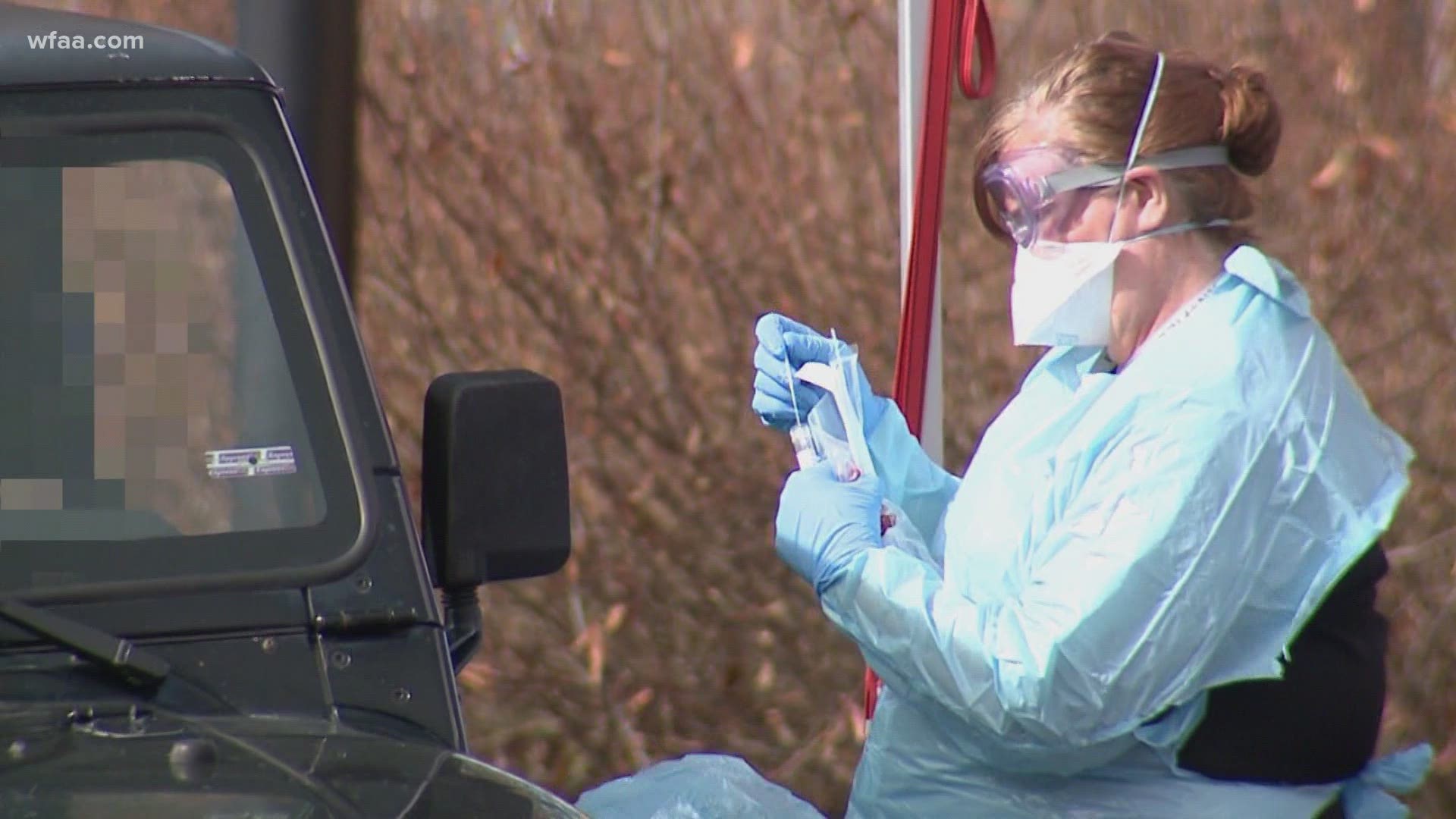FORT WORTH, Texas — Texas Department of State Health Services officials say they discovered the state’s reporting backlog affected more than half a million tests.
The issue has created confusion with the state’s online dashboard showing sudden changes in testing, case numbers and the state’s positivity rate.
“When we see there are adjustments that need to be made, we’re doing that as quickly as possible,” DSHS spokesperson Chris Van Deusen said. “We’re doing it as transparently as possible.”
DSHS says Walgreens dumped around 59,000 test results this past weekend.
Recently, CHRISTUS Meditech, a major hospital group, submitted around 95,000 tests in a file format the state system couldn’t read properly.
On Aug. 9, the state began working through around 354,000 tests from Quest Labs that were being automatically canceled out due to a software glitch.
“We want it to be perfect as well and we working as quickly as we can to improve it in any way that we can,” Van Deusen said. “There are always going to be some adjustments, some changes that need to be made over time just because of the sheer amount of data.”
People who tested positive were informed of their results, but often times, counties weren’t.
The state’s positivity rate is calculated by dividing the number of new cases, a number of counties provide, by the number of new tests, a number the state provides.
For the 354,000 Quest Labs tests, the state was counting all of those tests in its positivity rate equation but missing thousands of positives.
DSHS doesn’t know the exact number of how many positives are new to counties now because health departments don’t just use the state for results. Counties can get positives reported through other systems like hospitals.
Now, counties are working through reconciling the new dump of cases with the ones already reported. It could be days before they’re done checking. Dallas County alone has so far reported more than 6,000 cases dating back as far as March.
Dr. Diana Cervantes is an epidemiologist at UNTHSC and says the backlog created bigger issues than just incorrect dashboards.
“Those cases have slipped through the cracks, meaning that there wasn’t timely contact tracing,” Cervantes said. “I think this just highlights that there’s definitely a need to update these systems.”
She says people shouldn’t doubt state data, including Collin County commissioners who voted to put a disclaimer on the county dashboard saying they have no confidence in the numbers.
“I think the way it was worded. It seemed more political to me,” she said. “There’s definitely other ways that it could have been stated to say that there is potential for there to be changes.”
Cervantes says an epidemiologist would pick the wording the state uses that data is provisional.
“We can’t guarantee there’s not going to be some issue in the future but what we can guarantee is that when we identify it, we’ll work with that lab. We’ll get it corrected,” Van Deusen said.
Both DSHS and Cervantes say no single data point can tell the story of what’s happening with COVID-19.
“You still have to think of overall what is the trend: Overall, what’s happening,” she said.
Right now, hospitalizations are falling but high. Deaths are near record levels and steady. Cases are declining, but so is testing.
“COVID is still an issue in Texas and that’s what this data shows us,” Van Deusen said.
While numbers may change in the future, the advice hasn’t: Distance, wash hands and wear a mask.


